Neurofeedback: A promising new treatment for PTSD
A new research study, using neurofeedback as a treatment for post-traumatic stress disorder (PTSD), is showing promising results in reducing symptoms and improving rates of remission. The study, conducted by the Atlas Institute, the University of Ottawa, Western University and the University of Geneva, is adding significantly to evidence that neurofeedback is on par with gold-standard treatments for PTSD.
Join us and a panel of experts and people with lived experience to learn more about what neurofeedback is and how it heals parts of the brain that are impacted in the aftermath of trauma, and that contribute to PTSD symptoms.
Our panel of experts and people with lived experience will discuss:
- What neurofeedback is and how it can be used to treat PTSD
- Why it is particularly useful for treating complex disorders like PTSD
- How neurofeedback works to heal altered brain activity in the aftermath of trauma
- The ways this flexible treatment method can be incorporated into therapeutic treatment plans
Dr. Andrew Nicolson, Director of Clinical Research at the Atlas Institute, will share findings from his current research, and will co-facilitate a discussion with a person of lived experience, and a panel of experts. Participants will be invited to ask questions and share insights.
Panelists
Andrew Nicholson, PhD, BSc
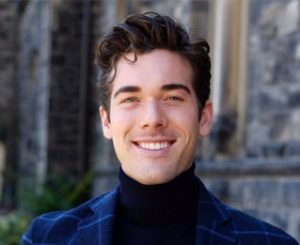 Dr. Andrew Nicholson is the Director of Clinical Research at the Atlas Institute for Veterans and Families as well as an Assistant Professor within the School of Psychology at the University of Ottawa. As a scientist at the University of Ottawa’s Institute of Mental Health Research, he also holds the Atlas Institute Chair of Minority Stress and Trauma Research. Dr. Nicholson completed his Ph.D. in Neuroscience at Western University, Schulich School of Medicine and Dentistry, with Dr. Ruth Lanius. He then went on to complete two postdoctoral fellowships at the Homewood Research Institute (HRI), Canada, and at the University of Vienna, Austria/the University of Zurich, Switzerland.
Dr. Andrew Nicholson is the Director of Clinical Research at the Atlas Institute for Veterans and Families as well as an Assistant Professor within the School of Psychology at the University of Ottawa. As a scientist at the University of Ottawa’s Institute of Mental Health Research, he also holds the Atlas Institute Chair of Minority Stress and Trauma Research. Dr. Nicholson completed his Ph.D. in Neuroscience at Western University, Schulich School of Medicine and Dentistry, with Dr. Ruth Lanius. He then went on to complete two postdoctoral fellowships at the Homewood Research Institute (HRI), Canada, and at the University of Vienna, Austria/the University of Zurich, Switzerland.
Nicholson’s research program is largely focused on better understanding the neural correlates of trauma and stress-related disorders, including PTSD. Additionally, his research aims to elucidate the neural underpinnings of minority stress/trauma exposure from an intersectional perspective (using neuroimaging modalities), in order to better understand the neurobiological basis of mental health burdens that disproportionally affect marginalized communities.
Sebern Fisher, M.A.
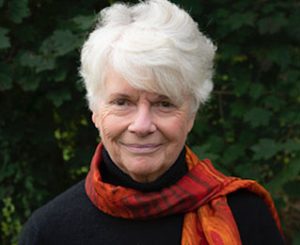 Sebern F. Fisher, M.A., is a psychotherapist and neurofeedback practitioner who specializes in the aftermath of neglect and abuse in early childhood. She focuses on training the traumatized brain to learn its own regulation, which it can learn at any age. She trains professionals nationally and internationally on neurofeedback and on the need to integrate neurofeedback with psychotherapy. Her book, Neurofeedback in the Treatment of Developmental Trauma: Calming the Fear-Driven Brain, has helped her readers understand how the traumatized brain can give rise to explosive feelings, irrational thinking and destructive behaviour. When the brain learns its own regulation, its owner can engage meaningfully in psychotherapy and in life.
Sebern F. Fisher, M.A., is a psychotherapist and neurofeedback practitioner who specializes in the aftermath of neglect and abuse in early childhood. She focuses on training the traumatized brain to learn its own regulation, which it can learn at any age. She trains professionals nationally and internationally on neurofeedback and on the need to integrate neurofeedback with psychotherapy. Her book, Neurofeedback in the Treatment of Developmental Trauma: Calming the Fear-Driven Brain, has helped her readers understand how the traumatized brain can give rise to explosive feelings, irrational thinking and destructive behaviour. When the brain learns its own regulation, its owner can engage meaningfully in psychotherapy and in life.
Ruth Lanius, M.D., Ph.D.
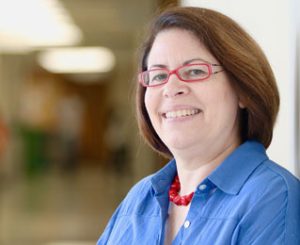 Dr. Ruth A. Lanius is a Psychiatry Professor and Harris-Woodman Chair at Western University of Canada, where she is the director of the Clinical Research Program for PTSD. She has over 25 years of clinical and research experience with trauma-related disorders, and established the Traumatic Stress Service at London Health Sciences Centre, a program that specializes in the treatment of psychological trauma. Dr. Lanius has received numerous research and teaching awards, including the Banting Award for Military Health Research. She has published over 150 research articles and book chapters focusing on brain adaptations to psychological trauma and novel adjunct treatments for PTSD. She regularly lectures on the topic of psychological trauma both nationally and internationally. She has co-authored The Effects of Early Life Trauma on Health and Disease: The Hidden Epidemic and Healing the Traumatized Self: Consciousness, Neuroscience, Treatment. Dr. Lanius is a passionate clinician scientist who endeavours to understand the first-person experience of traumatized individuals throughout treatment and how it relates to brain functioning.
Dr. Ruth A. Lanius is a Psychiatry Professor and Harris-Woodman Chair at Western University of Canada, where she is the director of the Clinical Research Program for PTSD. She has over 25 years of clinical and research experience with trauma-related disorders, and established the Traumatic Stress Service at London Health Sciences Centre, a program that specializes in the treatment of psychological trauma. Dr. Lanius has received numerous research and teaching awards, including the Banting Award for Military Health Research. She has published over 150 research articles and book chapters focusing on brain adaptations to psychological trauma and novel adjunct treatments for PTSD. She regularly lectures on the topic of psychological trauma both nationally and internationally. She has co-authored The Effects of Early Life Trauma on Health and Disease: The Hidden Epidemic and Healing the Traumatized Self: Consciousness, Neuroscience, Treatment. Dr. Lanius is a passionate clinician scientist who endeavours to understand the first-person experience of traumatized individuals throughout treatment and how it relates to brain functioning.
Tomas Ros, PhD
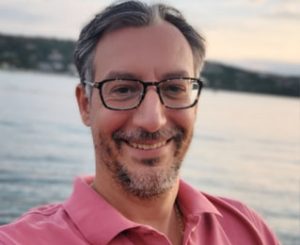 Dr. Tomas Ros completed his PhD in 2010 under the supervision of Prof. John Gruzelier, exploring the impact of EEG neurofeedback on mechanisms of long-term brain plasticity. During the last 10 years, he has researched the potential of neurofeedback as a novel treatment for psychiatric disorders, namely, for individuals with post-traumatic stress disorder (in collaboration with Prof. Ruth Lanius at Western University) and attention-deficit hyperactivity disorder (in collaboration with Prof. Nader Perroud at University of Geneva).
Dr. Tomas Ros completed his PhD in 2010 under the supervision of Prof. John Gruzelier, exploring the impact of EEG neurofeedback on mechanisms of long-term brain plasticity. During the last 10 years, he has researched the potential of neurofeedback as a novel treatment for psychiatric disorders, namely, for individuals with post-traumatic stress disorder (in collaboration with Prof. Ruth Lanius at Western University) and attention-deficit hyperactivity disorder (in collaboration with Prof. Nader Perroud at University of Geneva).
Daniel Pelletier, CAF Veteran
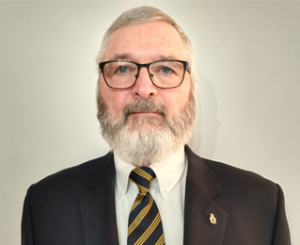 Daniel joined the Canadian Armed Forces in January 1973 where he spent his career as an infantryman. Over the 25 years in which he served 22 were in the Canadian Armed Forces and three years as a reservist with the Voltigeurs de Québec. He was a member of the 1st, 2nd and 3rd Battalion of the R22R as well as the 1st CDO, Airborne Regiment. Missions and assignments Daniel participated in were Cyprus 1975 and 1986, Montreal Olympics 1976, Jungle Warfare Training Australia 1976, landing maneuver Norway 1978, Germany 1979-83, Combat Arms School 1983, Airborne Regiment 1984-88, in charge of security for the ARMEX 85 International Exhibition in Ottawa, and Croatia in 1993-94. He retired as Master Warrant Officer in 1995 however he has remained active in military life acting as a FAC recruiting officer in Quebec 2001 and was the first OSISS peer support coordinator in Quebec 2002-2004.
Daniel joined the Canadian Armed Forces in January 1973 where he spent his career as an infantryman. Over the 25 years in which he served 22 were in the Canadian Armed Forces and three years as a reservist with the Voltigeurs de Québec. He was a member of the 1st, 2nd and 3rd Battalion of the R22R as well as the 1st CDO, Airborne Regiment. Missions and assignments Daniel participated in were Cyprus 1975 and 1986, Montreal Olympics 1976, Jungle Warfare Training Australia 1976, landing maneuver Norway 1978, Germany 1979-83, Combat Arms School 1983, Airborne Regiment 1984-88, in charge of security for the ARMEX 85 International Exhibition in Ottawa, and Croatia in 1993-94. He retired as Master Warrant Officer in 1995 however he has remained active in military life acting as a FAC recruiting officer in Quebec 2001 and was the first OSISS peer support coordinator in Quebec 2002-2004.
A member of the Royal Canadian Legion, Daniel has also taken Royal Canadian Legion Service Officer Training, Mental Health First Aid Training and served as an advisor to the research team Office of One Health & Wellness, Department of Sociology, University of Saskatchewan where he participated in research with veterans and their families as well as the contribution of service dogs. He is the co-author of a manuscript submitted to the Journal of Military, Veteran and Family and member of the lived experience cadre at the Atlas Institute for Veterans and their Families. He is involved with the Canadian Foundation for Animal Assisted Support and Services (cf4aass) and promoter for a project of Veteran handymen, who volunteer to help veterans with problems that require minor repairs to their homes.